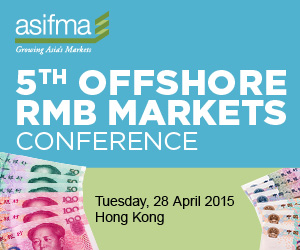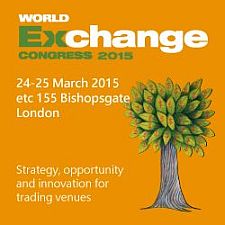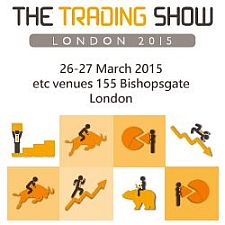Securities
STOCK EXCHANGE OF HONG KONG SECURITIES TRADING INFORMATION
TRADING MECHANISM OF THE EXCHANGE
The trading system of the Exchange is an order-driven system.
During the Pre-opening Session, the system accepts at-auction and at-auction limit orders only.
During the Continuous Trading Session, the system accepts limit, enhanced limit and special limit orders only, with an option for an “All-or-Nothing Qualifier” that confines the order to be either executed immediately in full or rejected, without being written into the central order book.
Trading is conducted through terminals in the Trading Hall of the Exchange or through the off-floor trading devices at Exchange Participants’ offices.
Automatic Order Matching and Execution System (“AMS”)
Trading Sessions
Pre-opening Session
The maximum order size for automatch stocks is 3,000 board lots. The maximum number of outstanding orders per broker ID has been removed while the number of orders in each price queue has been increased to 20,000 effective 29 January 2007. Orders are accumulated over a certain period of time and matched at a pre-defined order matching period. Orders are matched in order type, price and time priority (at-auction orders carry a higher matching priority), at the final Indicative Equilibrium Price (“IEP”). The Pre-opening Session was introduced in March 2002. Please click here for FAQ in relation to Pre-opening Session.
Continuous Trading Session
The maximum order size for automatch stocks is 3,000 board lots. The maximum number of outstanding orders per broker ID has been removed while the number of orders in each price queue has been increased to 20,000 effective 29 January 2007. Orders are continuously executed in strict price and time priority. An order entered into the system at an earlier time must be executed in full before an order at the same price entered at a later time is executed.
Order Types
AMS currently supports the following order types for automatching:
Pre-opening Session
The AMS/3 only accepts at-auction and at-auction limit orders during the Pre-opening Session as long as the order price input into the AMS/3 does not deviate 9 times or more from the previous closing price or the nominal price (as the case may be), if available.
At-auction Order
An at-auction order is an order with no specified price and is entered into the AMS/3 for execution at the final Indicative Equilibrium Price (IEP). It enjoys a higher order matching priority than an at-auction limit order and will be matched in time priority at the final IEP.
Any outstanding at-auction orders after the end of the Pre-opening Session will be cancelled before the commencement of the Continuous Trading Session.
At-auction Limit Order
An at-auction limit order is an order with a specified price. An at-auction limit order with a specified price at or more competitive than the final IEP (in case of buying, the specified price is equal to or higher than the final IEP, or in case of selling, the specified price is equal to or lower than the final IEP) may be matched at the final IEP subject to availability of eligible matching order on the opposite side. An at-auction limit order will be matched in price and time priority at the final IEP. No at-auction limit order will be matched at a price worse than the final IEP.
Any outstanding at-auction limit orders at the end of the Pre-opening Session will be carried forward to the Continuous Trading Session and treated as limit orders provided that the specified price of that at-auction limit order does not deviate 9 times or more from the nominal price. Such orders will be put in the price queue of the input price.
Continuous Trading Session
The AMS/3 only accepts limit, enhanced limit and special limit orders (with an option for an “All-or-Nothing Qualifier” that confines the order to be either executed immediately in full or rejected without being written into the central order book) during Continuous Trading Session as long as the order price input into the AMS/3 (i) does not deviate 9 times or more from the nominal price, if available, and (ii) follows the quotation rules unless the restriction is waived.
Limit Order
A limit order will allow matching only at the specified price. The sell order input price cannot be made at a price below the best bid price, if available whereas the buy order input price cannot be made at a price above the best ask price, if available.
Any outstanding limit order will be put in the price queue of the input price.
Enhanced Limit Order
An enhanced limit order will allow matching of up to 10 price queues (i.e. the best price queue and up to the 10th queue at 9 spreads away) at a time provided that the traded price is not worse than the input price. The sell order input price cannot be made at a price of 10 spreads (or more) below the current bid price whereas the buy order input price cannot be made at a price of 10 spreads (or more) above the current ask price.
Any outstanding enhanced limit order will be treated as a limit order and put in the price queue of the input price.
Special Limit Order
A special limit order will allow matching of up to 10 price queues (i.e. the best price queue and up to the 10th queue at 9 spreads away) at a time provided that the traded price is not worse than the input price. A special limit order has no restriction on the input price as long as the order input price is at or below the best bid price for a sell order or at or above the best ask price for a buy order.
Any outstanding special limit order will be cancelled and will not be stored in the AMS/3.
Trade Types
AMS currently supports the following trade types:
Automatch Trade
An automatch trade is a trade concluded through the AMS by automatic matching of buy and sell orders submitted by Exchange Participant(s).
Direct Business Transaction
A direct business transaction refers to the business transacted by an Exchange Participant who acts for both the buyer and the seller, whether as principal or agent.
Non-Direct Business Transaction
A non-direct business transaction refers to the business transacted by two Exchange Participants, one as buyer and the other as seller.
Manual Trade
A manual trade is a trade concluded by Exchange Participant(s) not through the AMS for which the selling party is responsible to report the trade details to the Exchange through the AMS.
Odd Lot Trade
An odd lot trade is a trade with the quantity of shares less than one board lot.
Auction Matching Trade
An auction matching trade refers to the automatic order matching of the auction orders during the order matching period in the Pre-opening Session. During order matching period, automatic order matching of the auction orders shall be conducted in accordance with Rule 517(1)(a) and no order shall be input into the AMS, amended or cancelled. All transactions concluded based on the methodology specified in Rule 517(1)(a) during the order matching period shall be deemed to have been concluded at the commencement of the order matching period.
Pre-opening Trade
A pre-opening trade is a trade concluded before the commencement of the Pre-opening Session, including that concluded on the previous day but not recorded in the AMS.
Order and trade information is disseminated to the market and investors through the market data feed, the Exchange’s website and other information systems. There is also a news system to display compliance and Exchange news and news on listed companies in both English and Chinese to enhance information dissemination to Exchange Participants and the public.
Quotation Rules
The first bid or ask order entered into the trading system on each trading day is governed by the opening quotation rule. The first order if it is a bid must be higher than or equal to the previous closing price minus twenty-four spreads. The first order if it is an ask must be lower than or equal to the previous closing price plus twenty-four spreads. The first order, whether it is a bid or ask, shall not in any case deviate 9 times or more from the previous closing price. Quotations for buy and sell orders other than the opening quotations are governed by another set of quotation rules and a scale of spreads. In particular, a buy order or a sell order shall not be made at a price that deviates 9 times or more from the nominal price. However, quotation rules in general do not apply to at-auction limit orders, except that a buy at-auction limit order or a sell at-auction limit order shall not be made at a price that deviates 9 times or more from the nominal price.
The spread table is available under the Second Schedule of the Rules of the Exchange.
AMS/3 Trading System
The third generation of the AMS is a trading system developed by the Stock Exchange of Hong Kong Ltd. and was launched on 23 October 2000. The system consists of four key components - (1) Trading Terminal; (2) Multi-Workstation System (“MWS”); (3) Broker Supplied System (“BSS”); and (4) Order Routing System (“ORS”).
Exchange Participants can choose among Trading Terminals, Multi-Workstation System and Broker Supplied System as their trading facilities. Depending on the type of trading facility used by the Exchange Participants, investors can place orders via various channels to their brokers. The Order Routing System, developed by the Exchange, enables investors to place trading requests electronically (such as mobile phones using the network of operators who participate in AMS/3). Only Exchange Participants using MWS and BSS can receive investor orders through ORS.
For details of AMS/3, please visit our website at Trading System - AMS/3.
Trading Periods
|
Pre-opening Session: 09:00 - 09:30
Morning Session: 09:30 - 12:00 Afternoon Session: 13:00 - 16:00 |
|
Pre-opening Session: 09:00 - 09:30
Morning Session: 09:30 - 12:00 Extended Morning Session: 12:00 - 13:00 Afternoon Session:13:00 - 16:00 |




